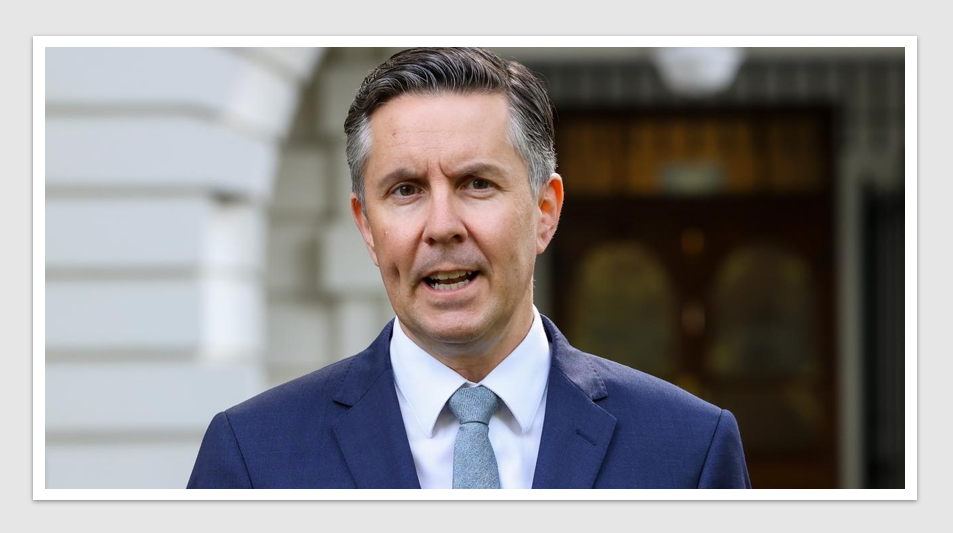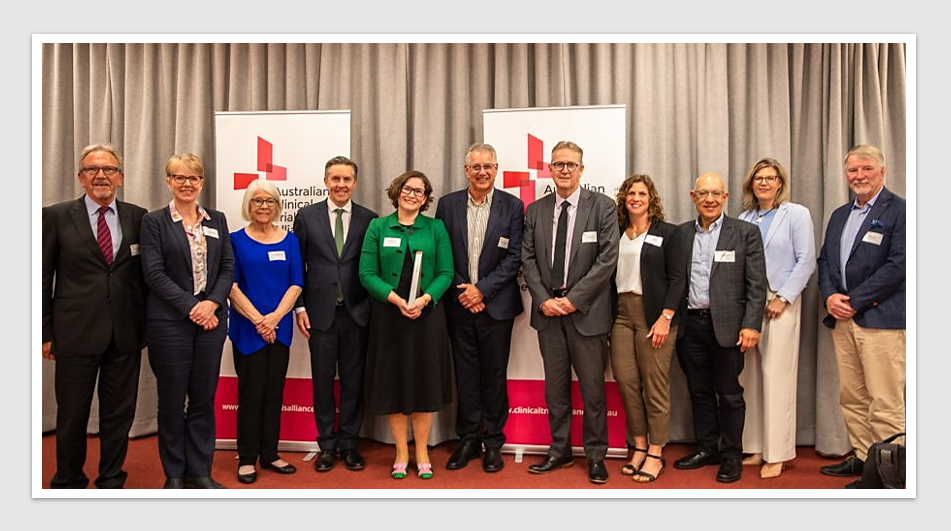News & Trends - MedTech & Diagnostics
Four Corners investigation sparks contentious views on spinal cord stimulation and spinal fusion for chronic back pain

MedTech & Diagnostics News: In an investigation by ABC Four Corners, the contentious landscape of spinal fusion surgery and spinal cord stimulators for chronic back pain has been thrust into the limelight, revealing deeply conflicted and divided perspectives across the healthcare sector.
Australians spend more than $3 billion a year to treat chronic back pain, with almost 90% of spinal cord stimulator procedures and 70% of spinal fusion surgeries performed in private hospitals.
Dr Margaret Faux, founder of commercial enterprises Synapse and Kirontech, which detect fraud, waste and abuse in medical payments systems, levelled significant accusations across the healthcare sector, saying “The pain industry is a huge, profitable business that everybody’s in. You’ve got anaesthetists, surgeons, pain specialists, GPs, drug companies, device companies.”
However, her credibility was called into question last year when she made false allegations against GPs for engaging in Medicare fraud amounting to $8 billion annually.
Dr Rachel David, CEO of Private Healthcare Australia (PHA), referred to an unpublished analysis of private patient data, saying “For 6,000 people who had spinal cord stimulators, 41% came back for more surgery within a three year window – whether that was for another implant or something went wrong with the original procedure. If you compare that to hip replacement, only 2.7% of patients come back within a three year window.”
Amidst heart-wrenching patient testimonials featured in the Four Corners investigation, a recent consumer report by Painaustralia and Neuromodulation Society of Australia shed light on the transformative impact of spinal cord stimulators on patients’ lives. The report indicated that spinal cord stimulator procedures have not only enhanced the quality of life for patients but have also led to a notable reduction in medication usage and an improvement in their ability to undertake everyday activities.
However, Professor Ian Harris, orthopaedic surgeon and author of the Cochrane systematic review on spinal cord stimulation, claimed that “spinal cord stimulators are no more effective than placebo”. He criticised the surgical decision-making authority, citing rampant uncertainty and practice variations fuelled by self-interest.
“Doctors have been put in a position where we make all the decisions. It’s too easy for us to let other incentives influence our decision making. And, it’s too easy for us just to rely on our own observation,” Professor Harris stated.
Adelaide-based spine surgeon, Dr Mike Selby, asserted “What was telling is not one person on the [Four Corners] show had an answer for the severe pain many of these patients were suffering, including Professor Harris, who to my knowledge is not a practicing spine surgeon and hasn’t had accreditation at any hospital for spine surgery for over 20 years.”
Ian Burgess, CEO of MTAA, also rejected the claims made by Professor Harris. In a statement to Health Industry Hub, he said “We firmly stand behind the evidence that supports the availability of spinal cord stimulators for Australians with chronic pain and share the concerns from pain experts and leading pain clinical and patient organisations on the limitations of the Cochrane review led by researchers at the University of Sydney. The methodology of this meta-analysis provides a limited view of the evidence landscape for spinal cord stimulators and ignores several other data sources such as long-term multi-centre comparative trials, more pragmatic studies and real-world evidence (RWE).”
With a focus on maximising shareholder profits in her PHA role, Dr David said “We looked at 764 Medtronic spinal cord stimulators that were implanted and of those 30% were revised or required some sort of premature surgical intervention to reset them within the first three years – either the device was replaced or a lead was replaced.”
ABC Investigations reporter Adele Ferguson slammed the TGA, saying “The job of the regulator is to keep people safe when it comes to spinal cord stimulators. Its performance has been appalling.”
MTAA’s Mr Burgess pushed back, commenting “Spinal cord stimulators have demonstrated the ability to produce clinically meaningful pain relief, improve quality of life, and significantly reduce the need for medication usage in individuals suffering from chronic pain.”
Despite the lack of access to full medical records, Dr Faux conducted an analysis of the private health insurance records of 23,000 patients spanning from November 2017 to May 2023. She pointed fingers at anaesthetists, accusing them of being the primary culprits behind the misbilling and other irregularities. The manner in which private health insurers obtained patient consent for utilising their private medical data remains unclear.
Anaesthetist A/Professor Douglas Fahlbusch vehemently denounced the analysis, dismissing it as flawed and ill-informed.
“Without the patient records the analysis is compromised. Without knowing successful vs unsuccessful operations the analysis is compromised. In particular, claiming an operation took an hour or less because the imaging was used for less than an hour, shows a complete lack of understanding of both the anaesthesia and surgical procedures, and negates completely this part of the analysis. I’m disappointed that the ABC and PHA has not informed itself better before making such inflammatory and derogatory claims publicly,” he retorted.
Rural anaesthetist, Dr Anthony Eidan, echoed the sentiment, asserting “I would question the method used in the data analysis and the anaesthetic knowledge of the person behind it. It is extremely disrespectful to thousands of the hardworking, honest colleagues who save lives every single day and deliver one of the highest anaesthetic care standards in the world.”
RACGP Vice President A/Professor Michael Clements told Health Industry Hub, “Some patients, though not all, will benefit from surgery. Some patients will benefit from medication. Unfortunately, there is not a single solution and beyond balancing the economics of cost of care, we need to consider a patient-centred approach. That means care that is individualised to the patient, delivered in partnership with them, and coordinated between their GP and other specialists and health professionals.”
Chronic Pain Australia advocated for a holistic approach that prioritises multidisciplinary care and addresses systemic barriers.
“By integrating medical, psychological, and social support, including access to affordable treatments and community resources, we can enhance patient outcomes while minimising economic burdens. This approach not only improves quality of life but also reduces healthcare costs and boosts productivity,” Renee Rankin, CEO of Chronic Pain Australia told Health Industry Hub.
Dr David wasted no time in capitalising on the controversy, announcing “As a result of the Four Corners expose, PHA will immediately ask payment integrity experts within our health funds to investigate allegations of fraud, waste and abuse in spine surgery for back pain. We expect the Department of Health and Aged Care (DoHAC) will launch its own investigation as a matter of urgency and we’ll be seeking confirmation of this.”
 In reimagining healthcare across the entire patient journey, Health Industry HubTM is the only one-stop-hub bringing the diversity of Pharma, MedTech, Diagnostics & Biotech sectors together to inspire meaningful change.
In reimagining healthcare across the entire patient journey, Health Industry HubTM is the only one-stop-hub bringing the diversity of Pharma, MedTech, Diagnostics & Biotech sectors together to inspire meaningful change.
The content on Health Industry Hub is copyright protected and should only be accessed under individual user licenses. To subscribe, please click here and visit T&Cs here.
Human Resources

‘Be adaptable, vulnerable and continuously learn’, says Edwards Lifesciences HR Director: International HR Day
People & Culture: Coinciding with International HR Day, Samantha Alkin, Director Human Resources ANZ, Edwards Lifesciences, joined Health Industry Hub […]
MoreNews & Trends - Pharmaceuticals

Cancer care network ‘to address existing disparities in cancer outcomes’, says Health Minister
Pharma News: Announced by the government at the Innovations Showcase event, hosted by Cancer Australia in Sydney, the launch of […]
MoreNews & Trends - Pharmaceuticals

J&J Innovative Medicine campaign: The only local pharma entry shortlisted in Asia-Pacific awards
Pharma News: Johnson & Johnson Innovative Medicine (Janssen) is the only pharmaceutical company from Australia to have its campaign shortlisted […]
MoreNews & Trends - MedTech & Diagnostics

Post-joint surgery study wins clinical trial of the year award
MedTech & Diagnostics: A study in post-joint replacement surgery has clinched this year’s Australian Clinical Trials Alliance (ACTA) Trial of […]
More